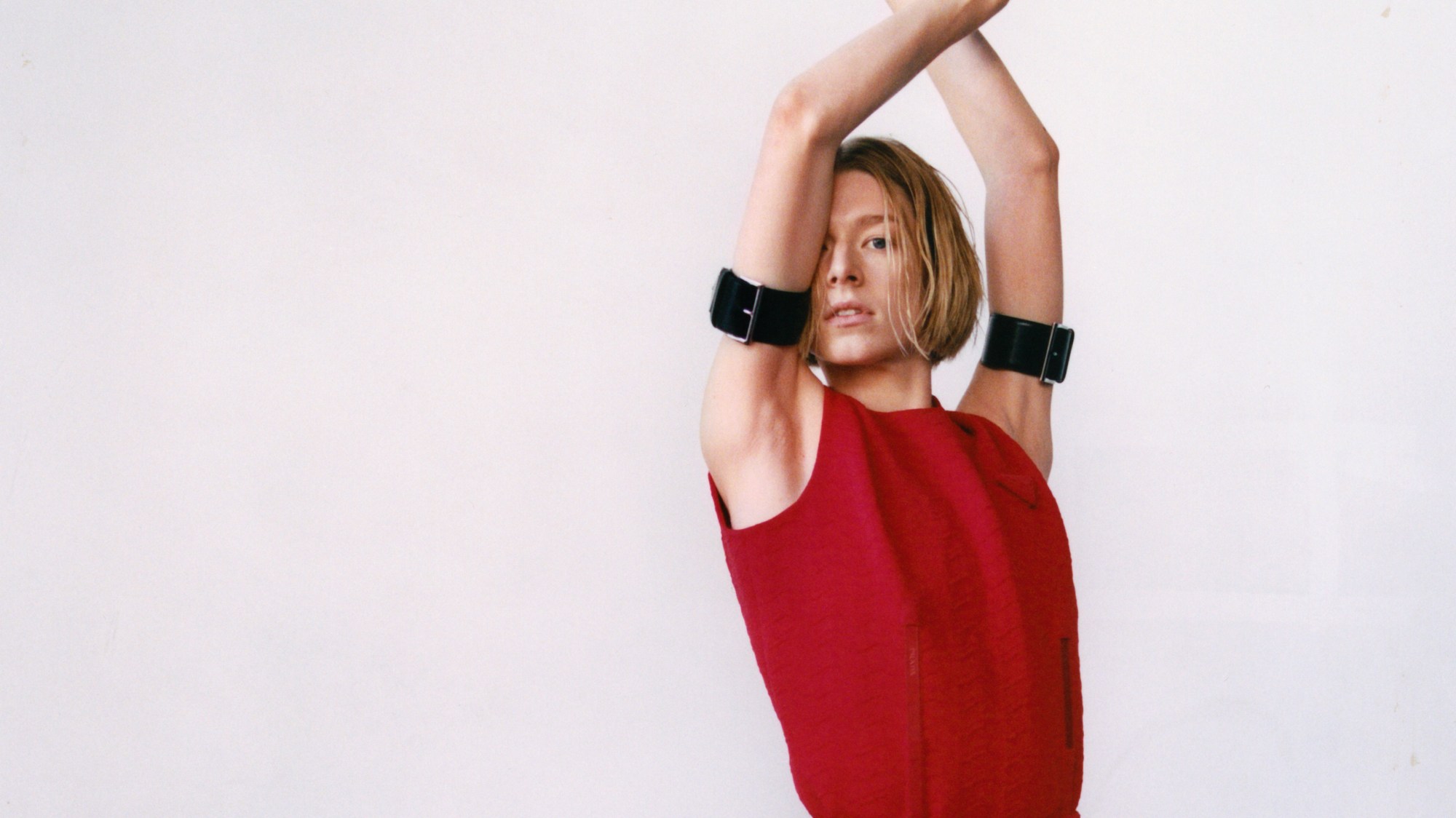This story originally appeared in i-D’s The Out Of Body Issue, no. 367, Spring 2022. Order your copy here.
For 23-year-old Hunter Schafer – Euphoria star, Prada muse, runway model, artist and general Gen Z icon – acting was never the goal. The self described “fashion fucking geek” – who never much liked being the centre of attention – had set her sights on studying design at Central Saint Martins, but in 2018, after being invited to audition thanks to her modelling work, she scored the role of high school junior Jules in HBO’s Emmy-winning teen TV series.
Hunter grew up in Raleigh, North Carolina, a blue city in a state of majority Republican voting red counties. “I have to be honest – I was not thrilled!” she says with a laugh when we speak, sitting cross-legged in a New York City hotel room, occasionally taking hits from a Juul. (Her Zoom username?: “Hunty <3”) “Everything I was interested in was happening in big cities. And it’s all I wanted, all the time… I had these really vivid dreams of what I wanted to achieve.”
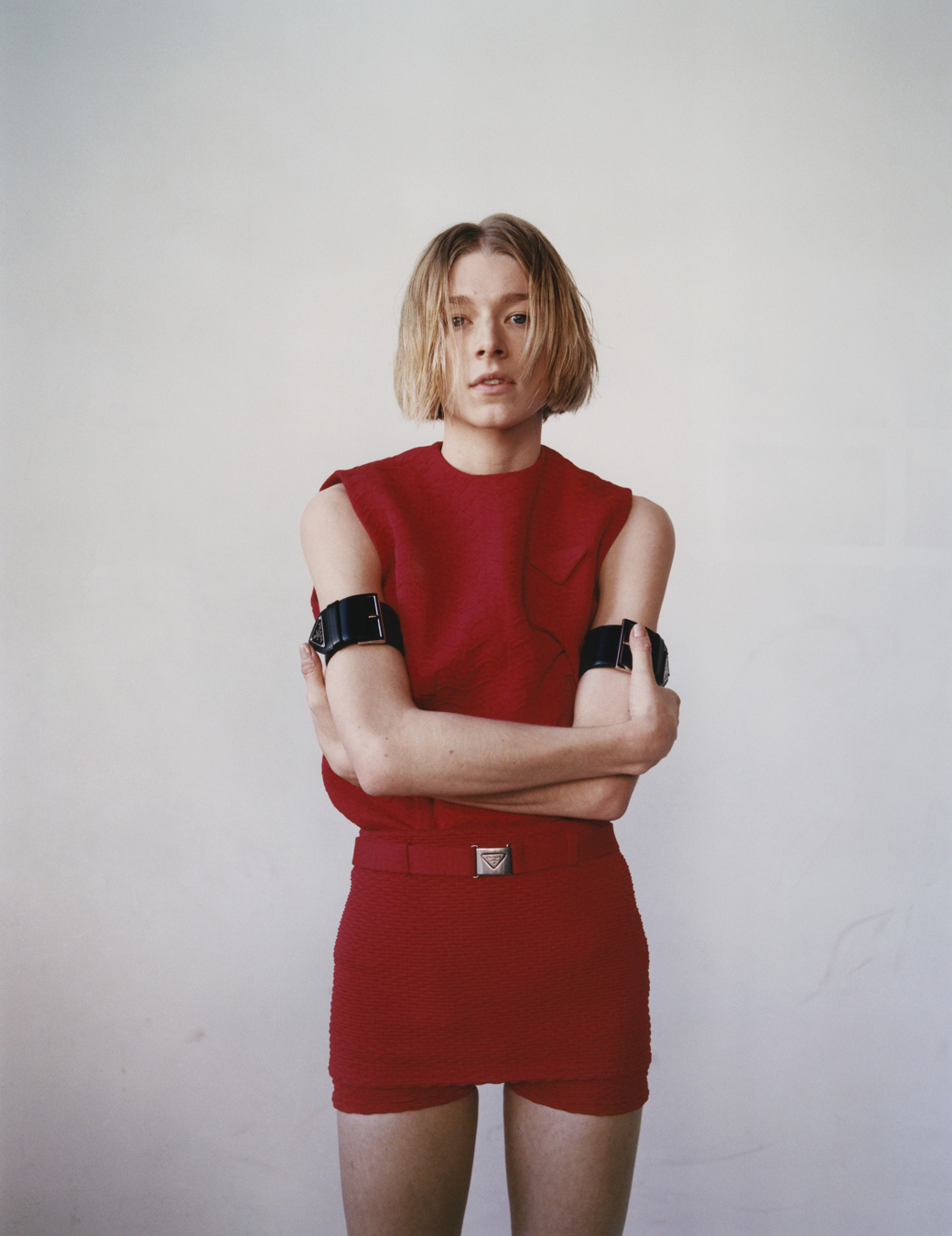
Growing up outside a major city was formative in its own way, or at least she sees it like that now. When there isn’t even a Zara in your state (“that was a special treat that maybe happened once every three years if we got out of North Carolina!”), you make do with what you can score at the local Goodwill, cutting it up and relying on your creativity to get it to meet your requirements.
Like Jules, the character she plays on Euphoria, Hunter, is transgender. In 2017, while still a teenager, she acted as a plaintiff in a federal lawsuit against her state’s discriminatory ‘bathroom bill’, which sought to force trans people to use the bathrooms of the gender they were assigned at birth. In a feature she penned for i-D at the time, she took aim at the “deep-rooted transphobia” behind the proposed law, calling it “a bill which appeals to a public still clinging to the gender binary and fearful depictions of those who reside outside of it.”

At school, she’d walk through the halls, headphones in, pretending to be in a movie. “As far as growing up in places where everyone’s expected to act a certain way and there’s traditional, conservative, gender roles and cultural expectations… having to work in opposition to those is weirdly something I’m thankful for,” she says. “It takes a little bit of bravery to step out, to be like, okay, I don’t look like anybody else around here. I am making the conscious decision to present myself the way I want to today, and no one’s really going to fuck with it, but I fuck with it. And that’s all that matters.”
“It’s this weird addiction I think we have as humans, to fit into something.”
Comic books, graphic novels, and sci-fi provided an outlet: “The protagonists are always the odd one out, which is probably a relatable feeling for a lot of queer kids or trans kids that grew up somewhere where there’s no one like you” – and the internet was another escape, a place she saw people making things happen for themselves. Hunter was part of the Rookie generation, a contributing illustrator to Tavi Gevinson’s influential platform for small town girls across the world, who burned with creativity and found a sense of belonging on the internet, as well as a gateway to the life they desperately wanted. “Tavi Gevinson was my fucking idol in high school,” she gushes. “That was kind of the beginning of kids, like, making it work through the internet. Finessing their way into actual industry shit through fucking Instagram.”
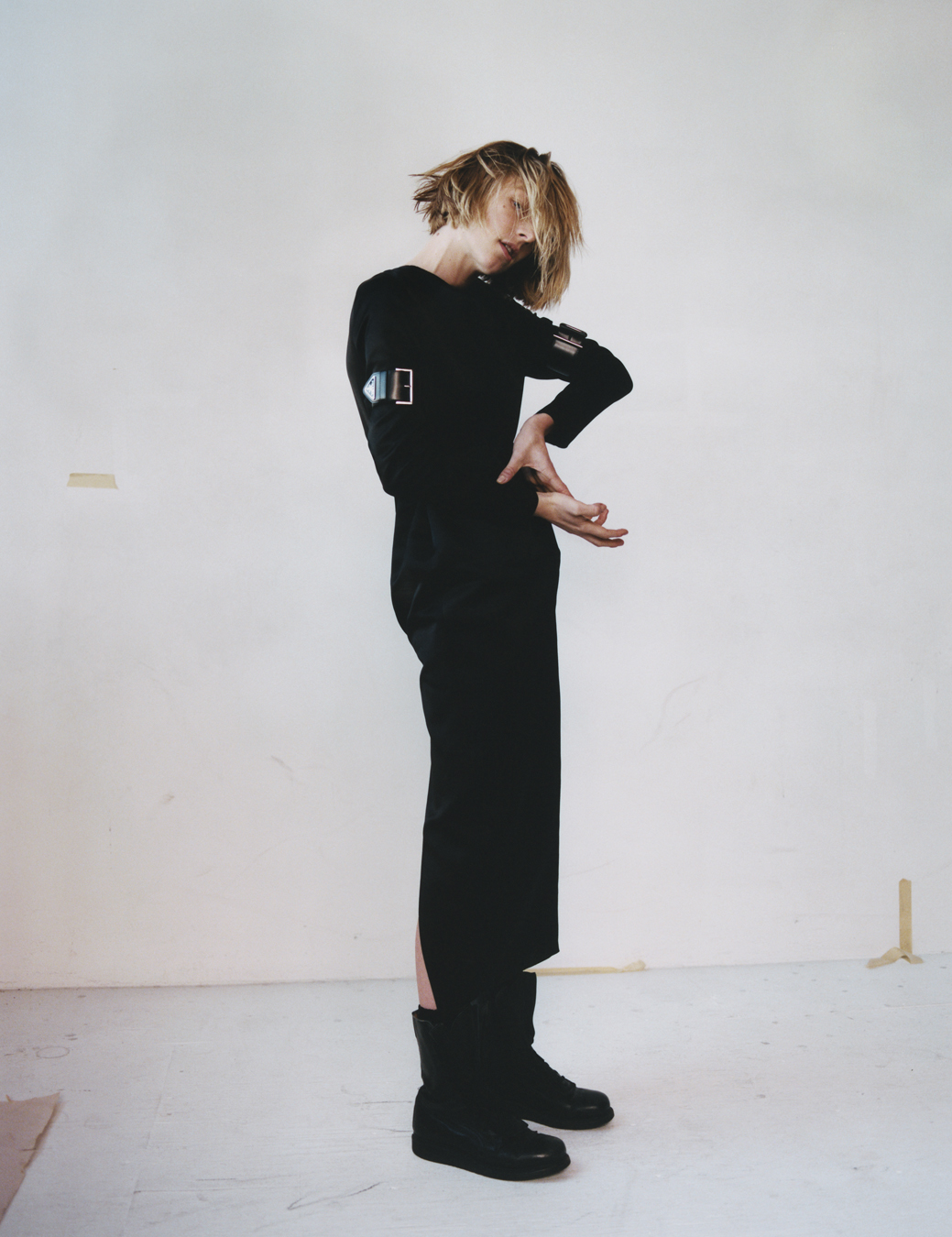
Which, as it happens, is exactly how it went for Hunter. After getting scouted on Instagram, she walked runways for the likes of Rick Owens, Miu Miu, Dior and Marc Jacobs. But it was Euphoria, the zeitgeisty brainchild of writer and executive producer Sam Levinson, that gave her her big break, and breaks don’t come much bigger. First airing in Summer 2019, Euphoria, all rushing highs and hormones, hits you like a sucker punch. In the canon of coming of age TV, it’s both classical and avant-garde: at turns brutal and tender, it’s My So Called Life on molly, Skins cut with Gregg Araki; a cinematic, no-holds-barred exploration of teenage hedonism.
But you can’t get the highs without the comedowns. The American opioid epidemic hangs over the series like an ever-present storm, casting a dark shadow of absentee parents and teens swiping pain pills. At least that’s how Rue, Jules’s best friend, love interest, and the central character played by Zendaya, develops her own drug addiction. After meeting at a party where Jules escapes a confrontation with series antagonist Nate by slashing herself with a knife (“I knew that was gonna get violent and I didn’t want a fucking broken cheekbone or some shit”), the two become inseparable. Jules is kind of an addict in her own way, albeit chasing emotional highs rather than chemical ones. There’s her penchant for meeting up with men twice her age in motel rooms, or when she stays up all night for weeks falling in love with a boy who doesn’t really exist. Or, as in the final episode of season one, when she runs away to the promises of the big city, leaving the fictional town of East Highland (and Rue) behind.
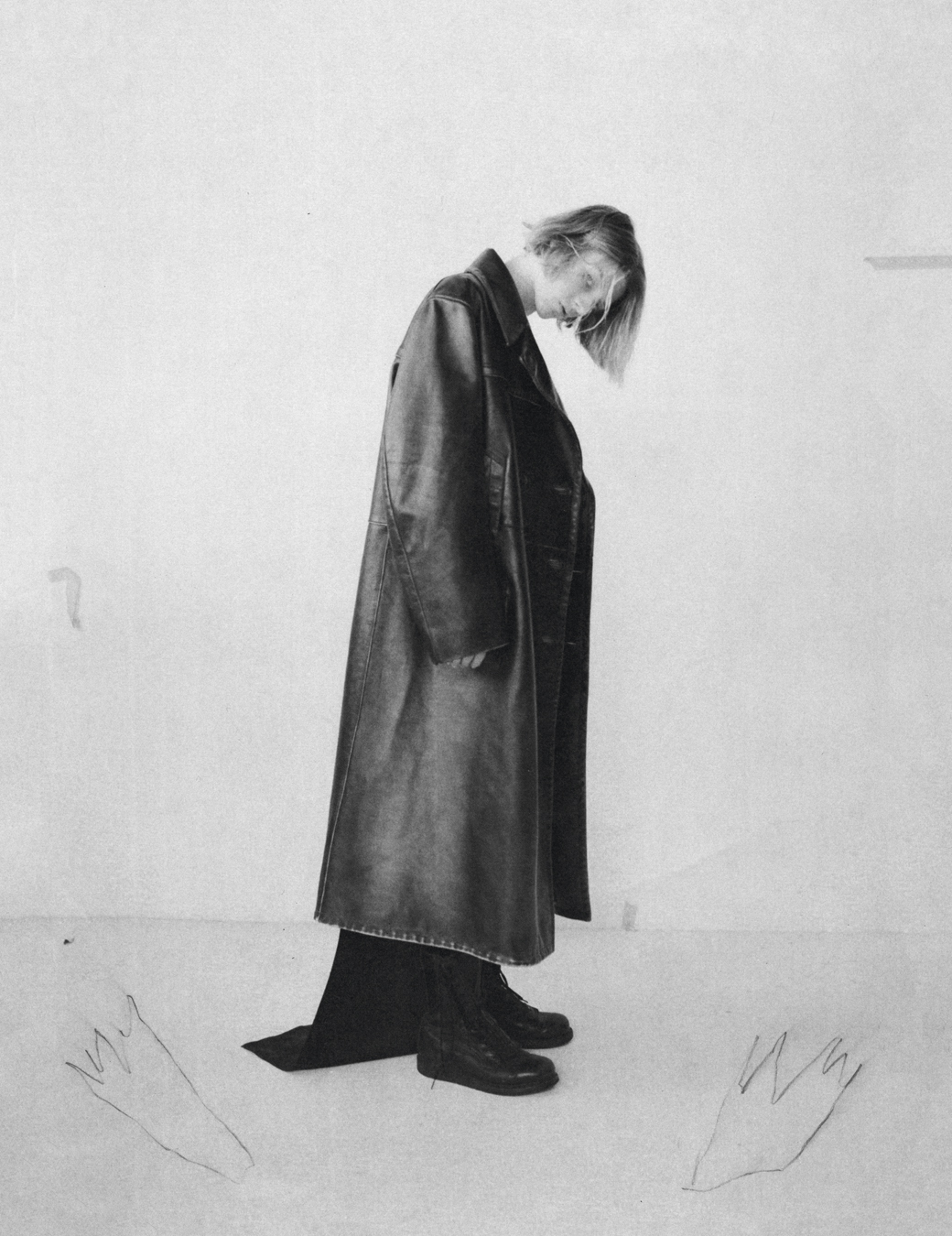
While the series is predominantly seen from Rue’s point of view, in Fuck Anyone Who’s Not a Sea Blob – a special episode co-written by Hunter, released to fill the gaps caused by a Covid-delayed start to the filming of season two – we get Jules’s side of the story: in an hour-long therapy session, she discusses everything from being institutionalised as a child, to her mother’s own struggles with sobriety. It’s intimate and affecting – a window into her character we hadn’t yet been afforded. “I feel like it really just gave us room to go deeper into her mind and her subconscious and her headspace,” Hunter says, noting that the invitation to write an episode came just at the right time. “I was in a very fucking raw place, you know, it was the summer of 2020. Probably coming out of the worst depression I’ve ever had, and needing somewhere to put all of that energy. When I say that episode really became a lifeline, I mean it.”
“It takes a little bit of bravery to step out, to be in the headspace of like: okay, I don’t look like anybody else around here. I am making the conscious decision to present myself the way I want to today, and no one’s really going to fuck with it, but I fuck with it. And that’s all that matters.”
The episode, which Hunter also co-produced, sketching out storyboards and working behind the scenes, allowed her to explore issues of identity and queerness. “Half of what Jules is talking about in that episode is rooted in the actual situation she’s in with Rue, being really discontent in East Highland, and having just endured a crazy-ass semester. The other half is just a 17-year-old trans girl, still figuring out who she is, and debating queerness within her head – what that means for her as a trans person. All of these new new parts of herself that she’s still uncovering, all intersect and create one big mess that she’s trying to untangle, or find some sense within.”
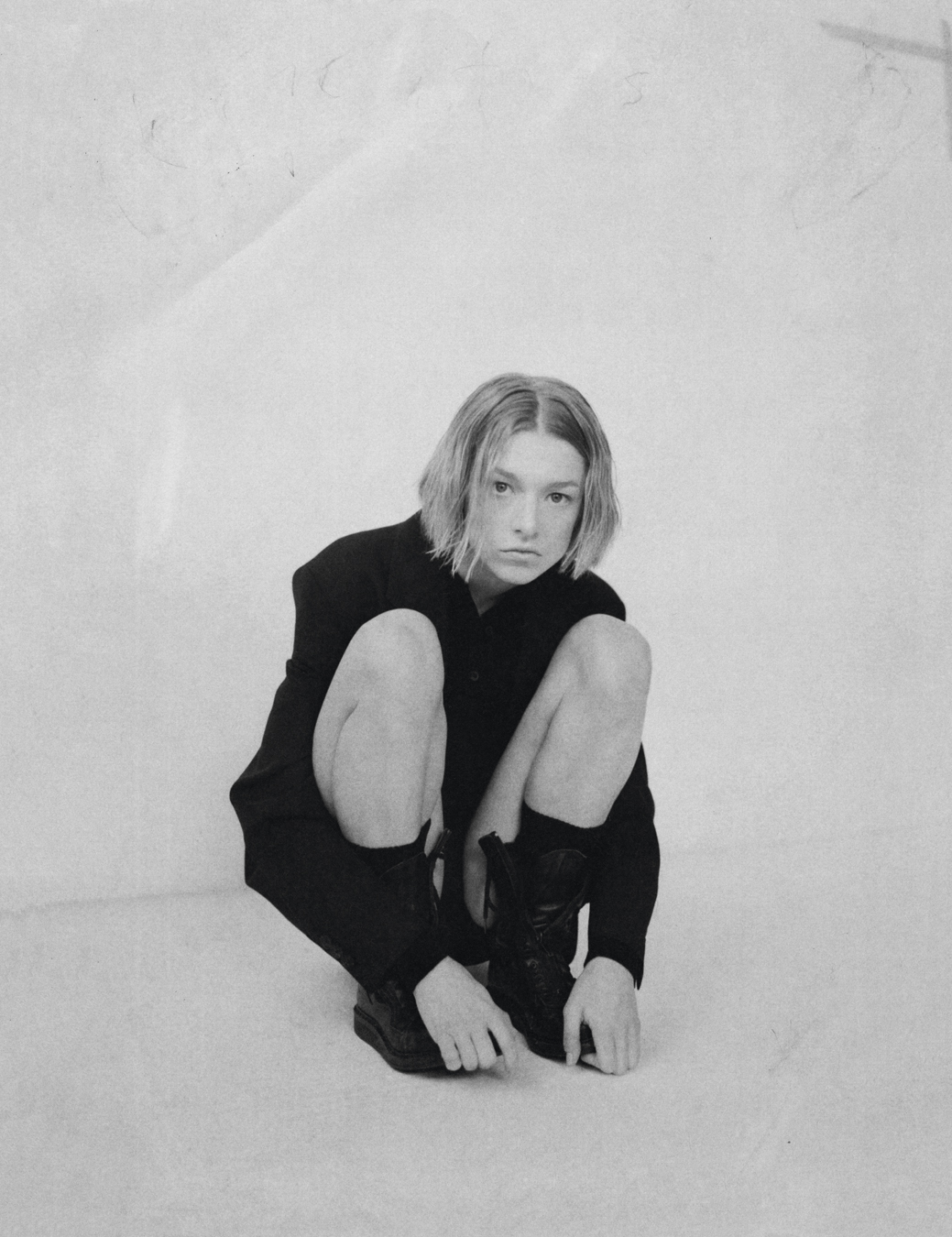
Jules is considering coming off her hormones, she tells her therapist, realising that she’s “framed [her] entire womanhood around men… when like, in reality, [she’s] no longer interested in men”. She speaks with an ambivalence rarely afforded to LGBTQ+ characters on mainstream television – especially when it comes to gender identity; even transness is often portrayed as something binary. “I think that was also at the forefront of my head when writing this episode,” Hunter says. “This is a really good opportunity to put some shit on TV that has not been on TV as far as like, what’s actually going on in young trans people’s heads beyond ‘Oh, I’m scared what people are gonna think because I’m trans’. Like, real, spiritual, philosophical… Who am I? What does this all mean?”
This line of thinking is also something she’s been working through in her own life. “It’s such like a queer way of navigating yourself,” she says. “I think we go through these phases of overcompensating, once you figure out what you think you might be.” Despite this temptation, not everything needs to be so rigidly defined – and you might just find the pendulum swings back somewhere closer to the middle. “I just had this conversation with my therapist the other day, actually, it was like: ‘You’re still putting yourself in boxes. You’ve worked your entire life to not be in boxes, and now you’re doing it to yourself.’ It’s this weird addiction I think we have as humans, to fit into something.”
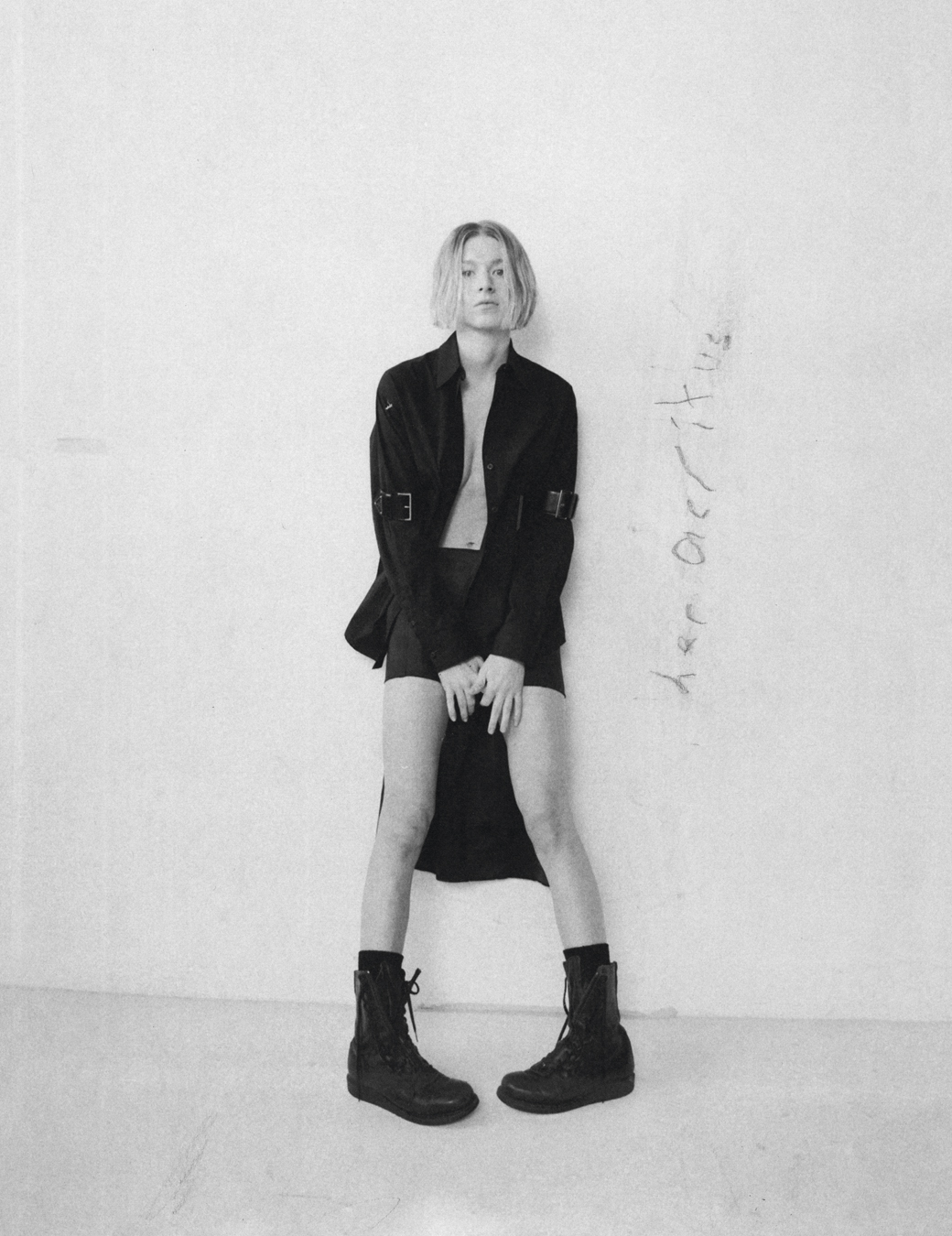
For Jules, that sense of figuring herself out comes through in her wardrobe. While she started season one with angelic pink-blonde hair, riding her baby blue bike in pastel pleated mini skirts, her character has been metamorphosising into “something slightly more androgynous” – as seen in her special episode. In season two, which began airing in January, shit gets dark, and Jules’s style begins to reflect that: her hair is shorter, her outfits harder-edged. “While I still think there’s always this anime, kind of cheeky, brightly coloured young girl in her soul, in season two, we definitely made it intentional that there was still some sort of arc visually happening with her,” Hunter shares.
The dynamic of Jules and Rue’s relationship is changing too – especially with the introduction of Elliot, played by face-tatted Soundcloud heart throb Dominic Fike. “They’re on thin ice between being toxic and wholesome,” Hunter says of Jules and Rue. With Rue’s continued battles with addiction, things get messy. “Season two definitely pushes them along that boundary and tests how far that love that feels unconditional can go.”
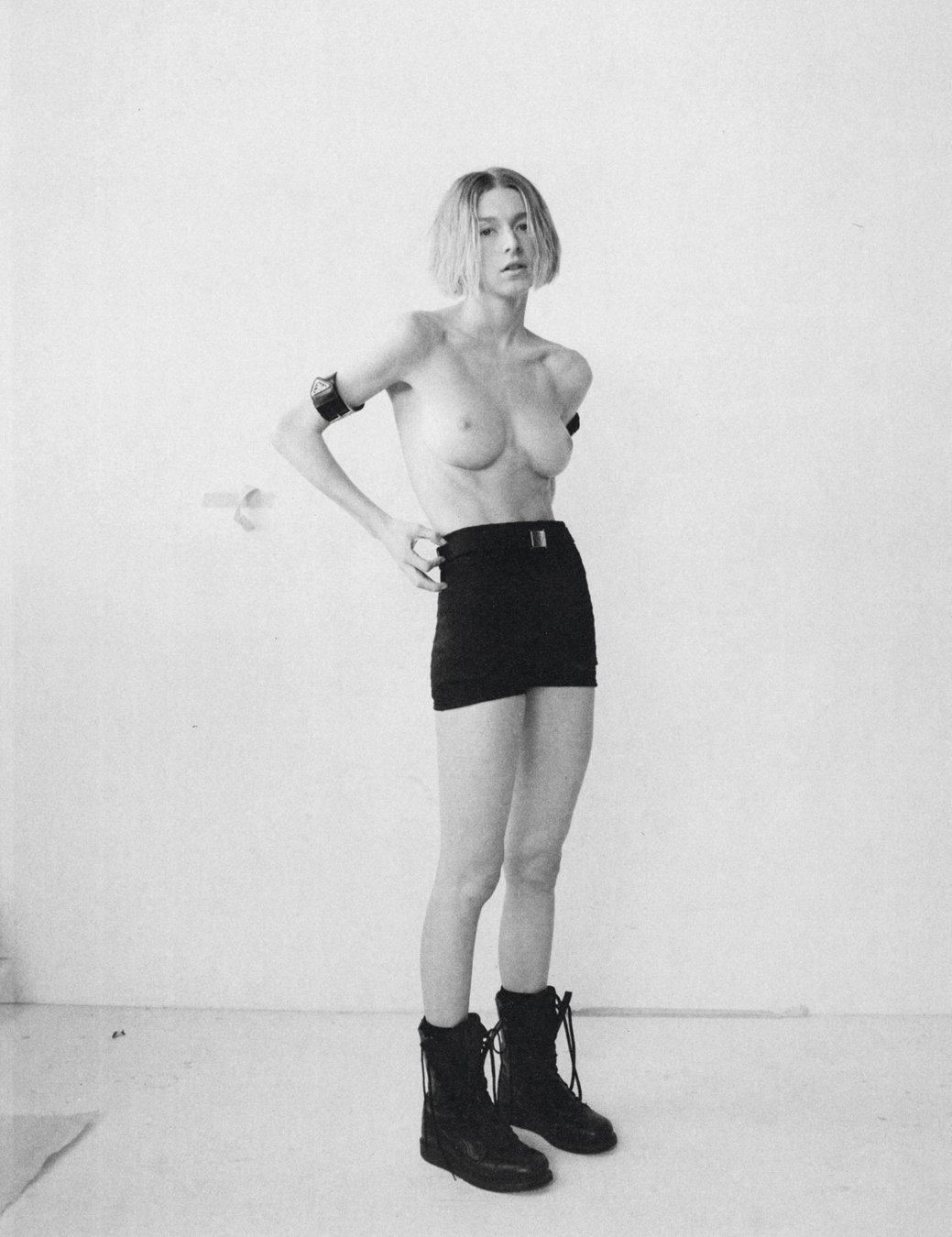
“I think she’s learning how to protect herself,” Hunter says of Jules. “Even just in season one, through that first semester at East Highland, she experienced so much fucking traumatic shit. In season two there’s a hardening in some capacity as a form of self-protection. But at heart, she’s a bit of a hopeless romantic. I think she has a hunger to love deeply, and feel loved by those she feels safe with. Which, in her current position, feels maybe a little bit hard to find.”
For someone who’s “always been pretty stage shy”, Hunter has more than found her footing. “Season one was like a super intense acting course,” she admits. “Even in the pilot, I remember in between takes being like, ‘Oh my God, this is so fucking hard. I have no idea what I’m doing.’ I was really truly learning while making an HBO television show, which is just a wild circumstance to be in… I think I’m finally at a place where I’m like, okay I like this, I can keep doing this. There’s something really special about acting. There’s nothing quite like it as far as making art goes.”
For all its drugs and drama, Euphoria is essentially a bildungsroman – it just happens that its stars are still coming of age too, realising that the most beautiful things in life are never clear cut; that the universe has a way of upending whatever plans – or timeline – you had in mind. Leaning into the uncertainty, into the in-between, is where you really learn to find yourself. And while the fashion geek has become the Met Gala attendee, Hunter has no Hollywood aloofness about her – instead, she comes across as entirely authentic, even as she navigates her fame. “I think from the outside this world can look really scary,” she says. But the truth is: “Everybody’s just kind of winging it.” It’s working out perfectly for her so far.
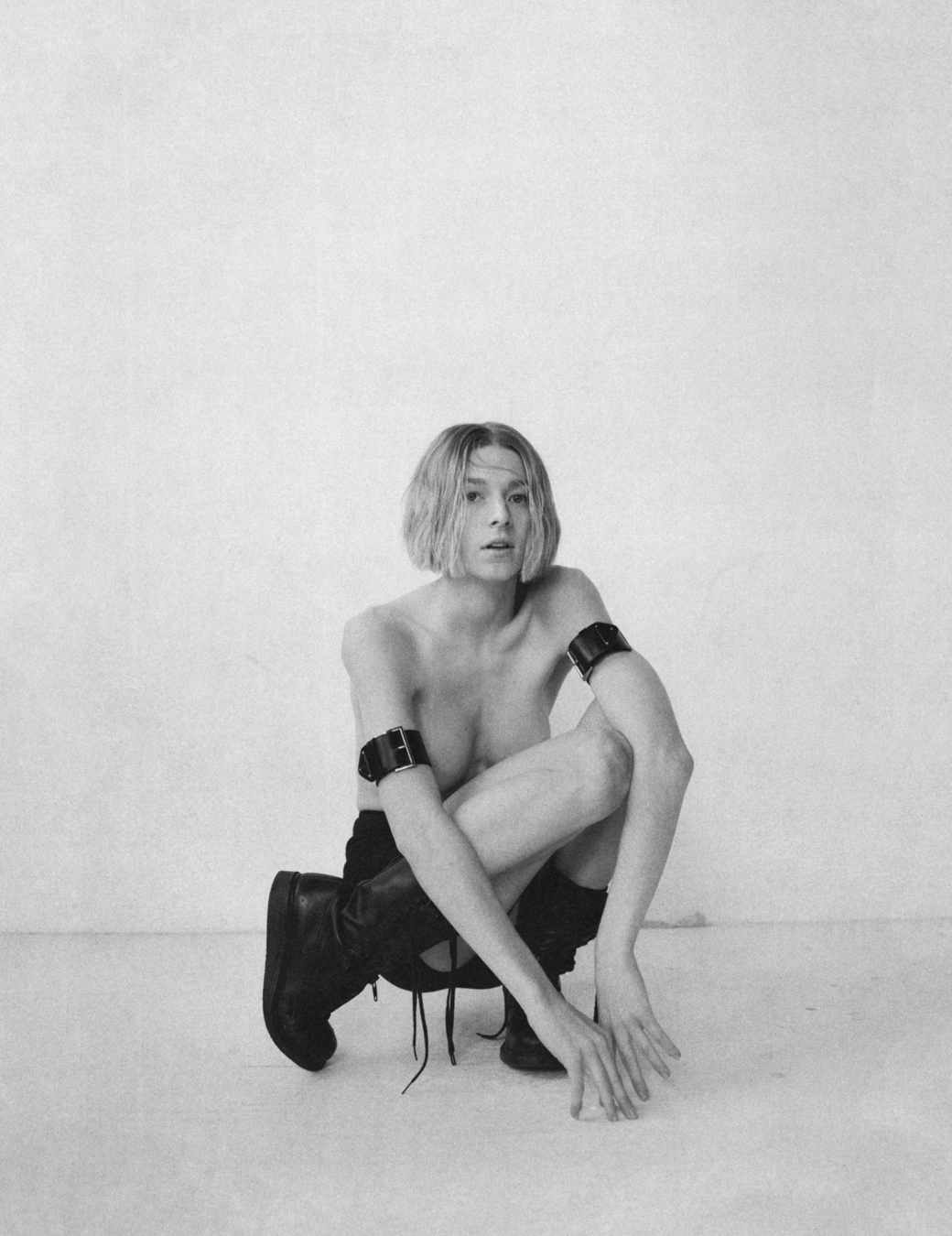
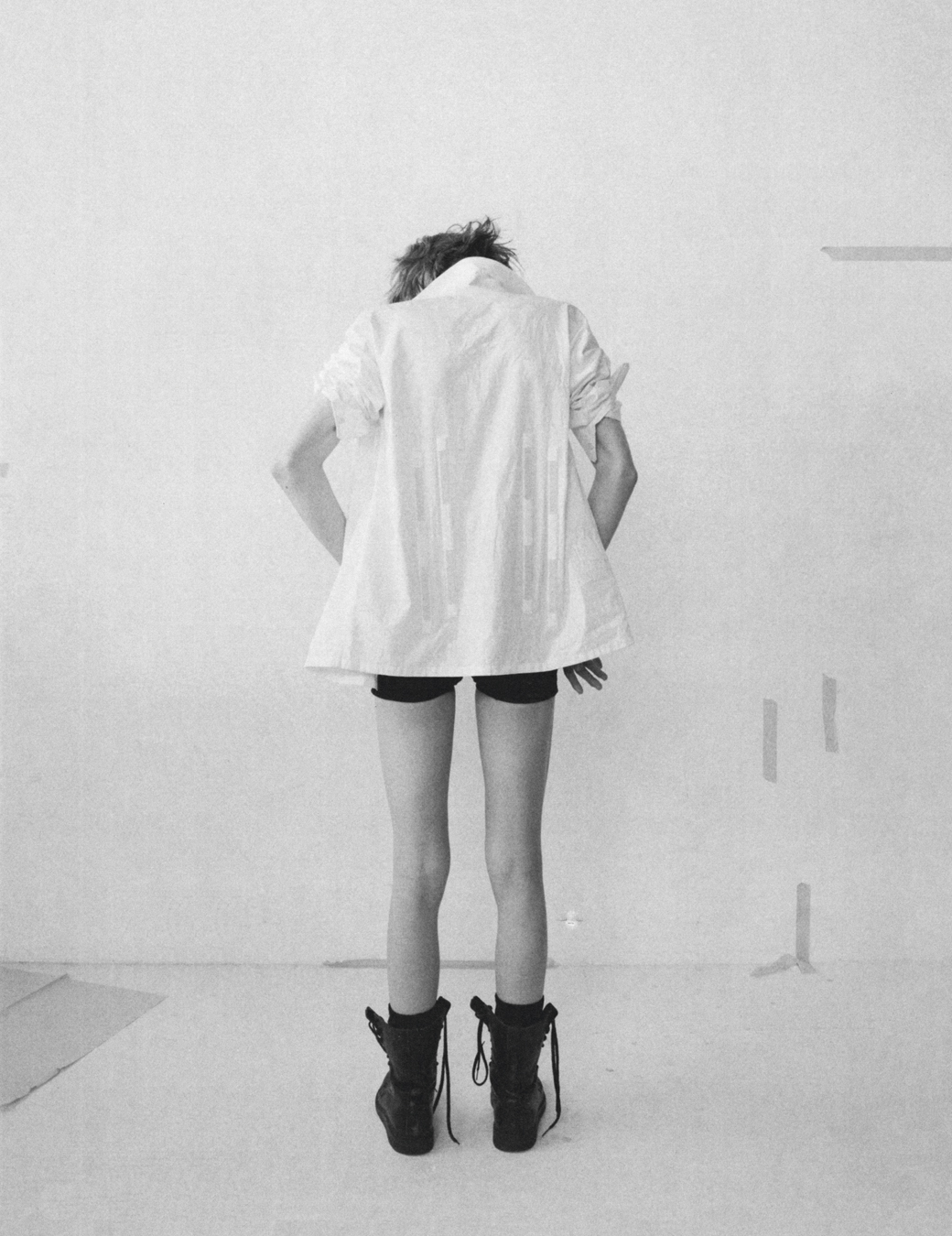
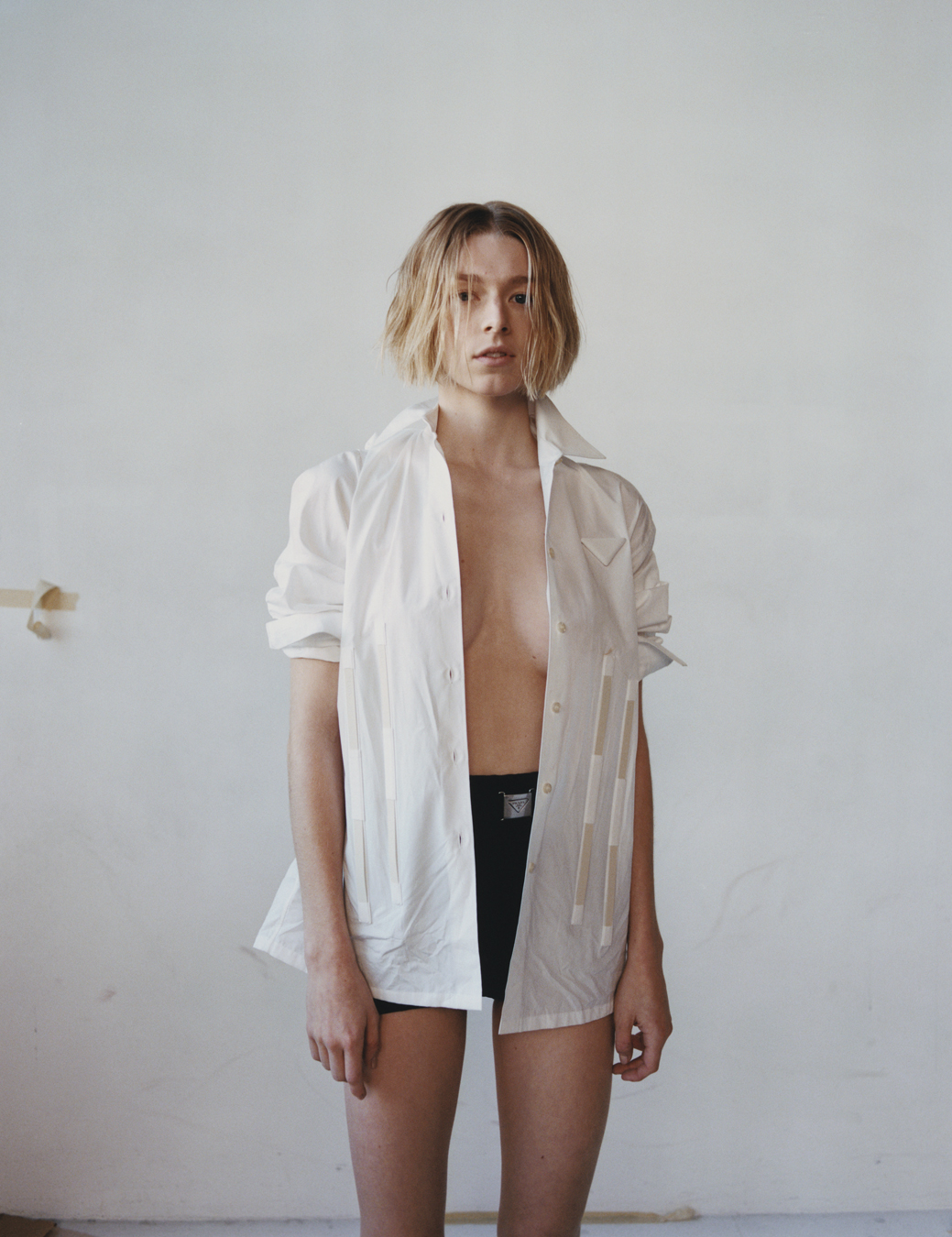
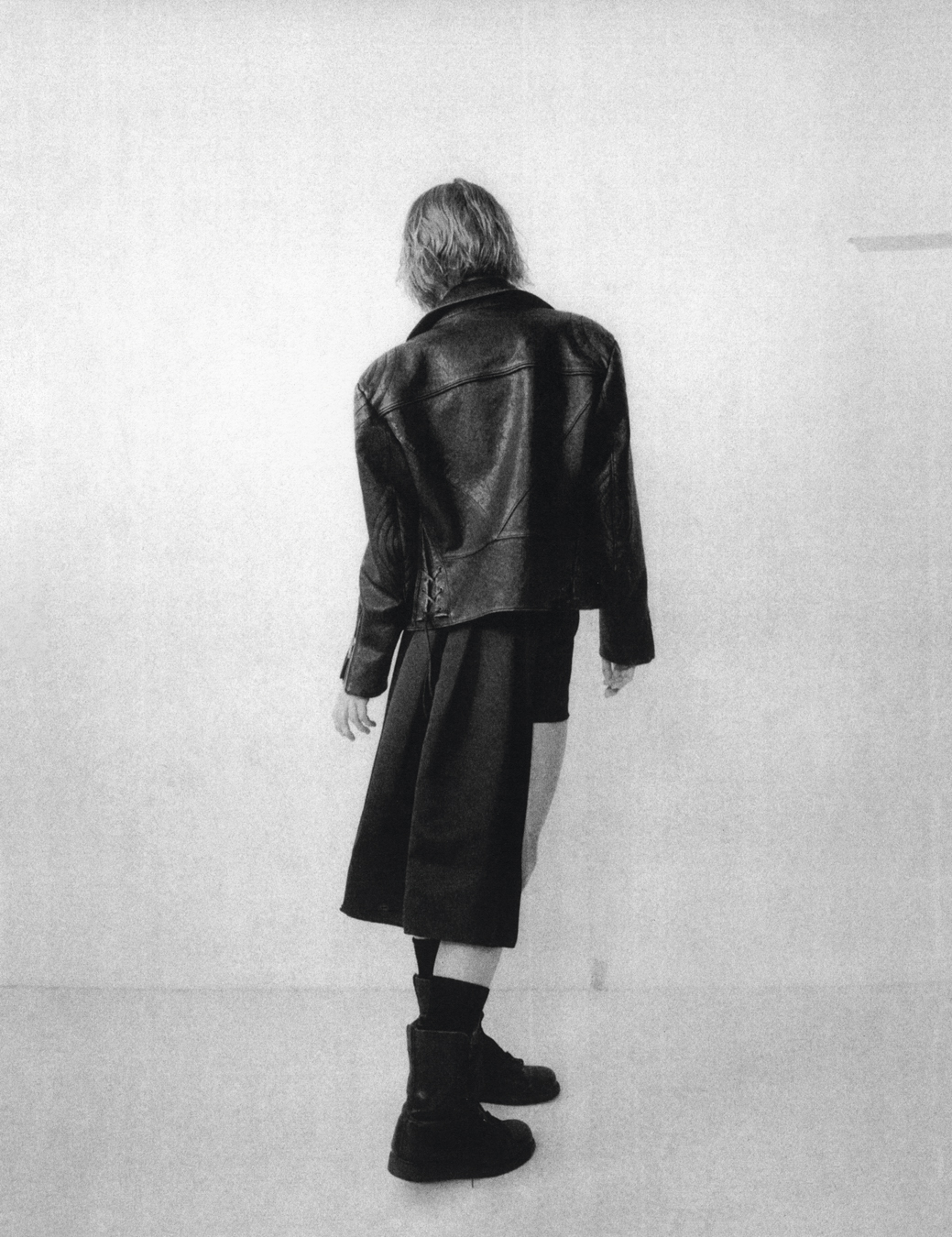
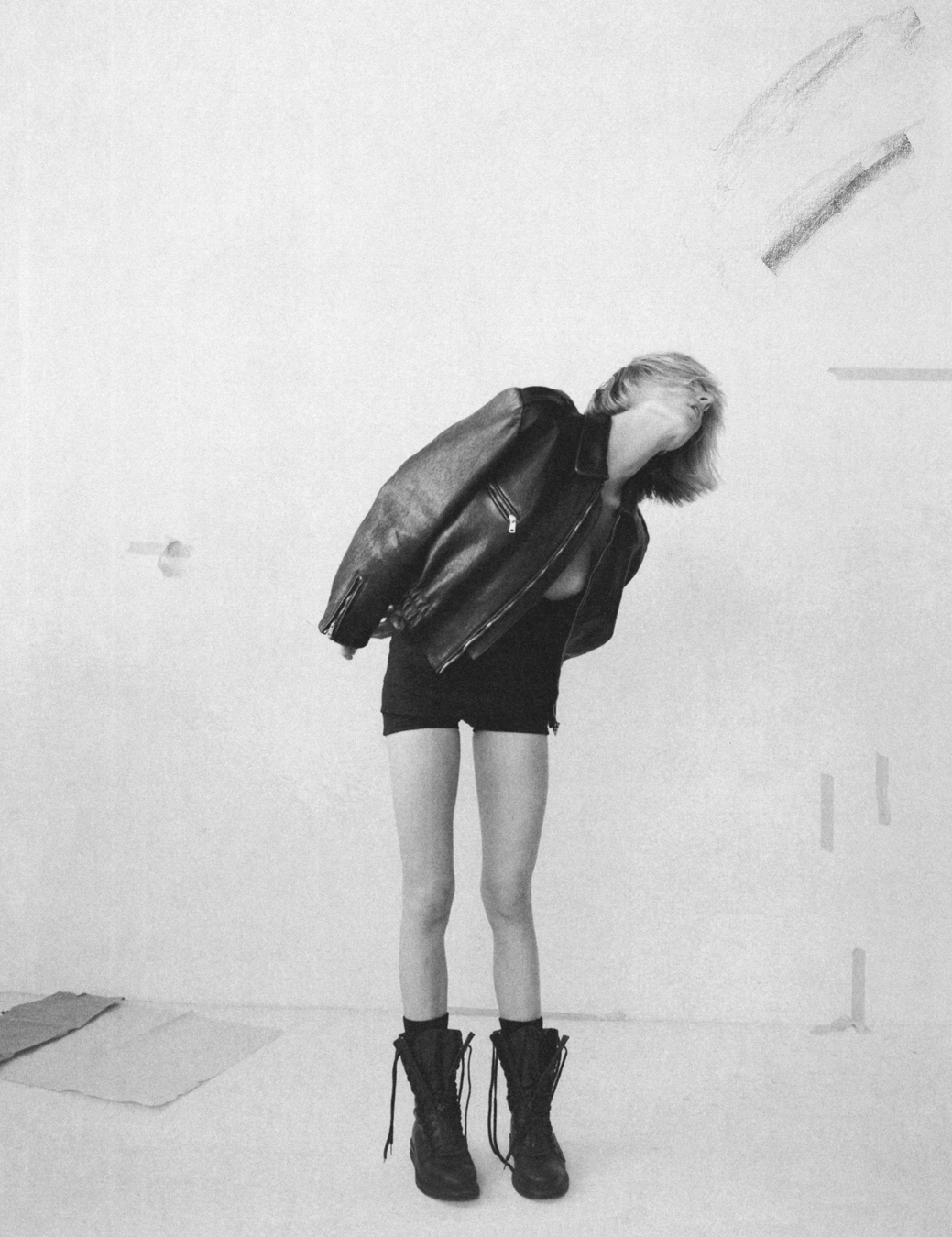
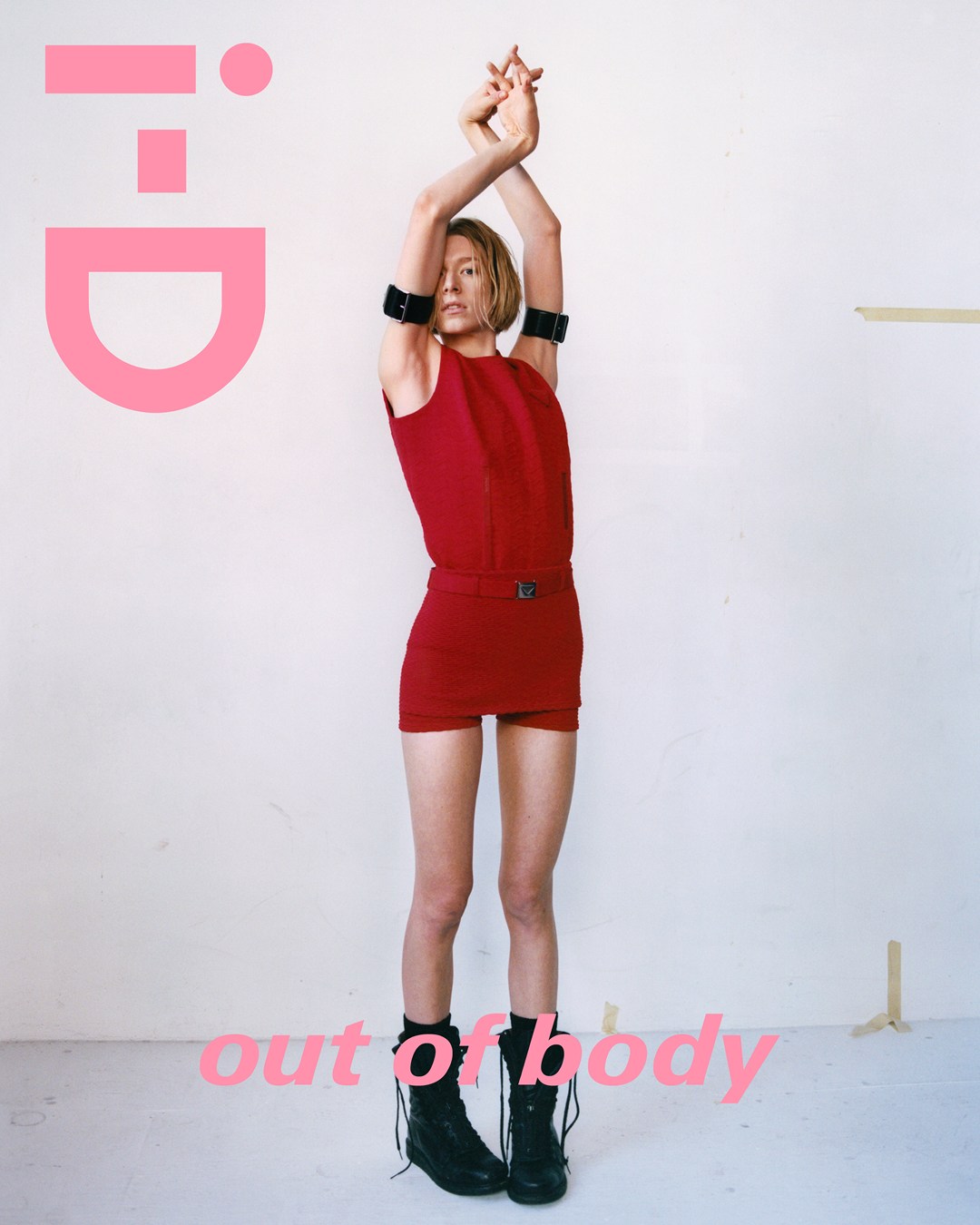
Follow i-D on Instagram and TikTok for more on Hunter Schafer and Euphoria.
Credits
Photography Stef Mitchell.
Fashion Alastair McKimm.
Hair Bob Recine at The Wall Group.
Make- up Diane Kendal at Julian Watson Agency.
Nail technician Honey at Exposure NY using Zoya Naked nail polish.
Set design Mila Taylor Young at CLM.
Photography assistance Zack Forsyth, Daniel Johnson and Casanova Cabrera.
Styling assistance Madison Matusich. Hair assistance Kazu Katahira.
Make-up assistance Jamal Scott.
Set design assistance Caz Slattery.
Production PRODn.
Casting director Samuel Ellis Scheinman for DMCASTING.
All clothing and accessories (worn throughout) PRADA.
